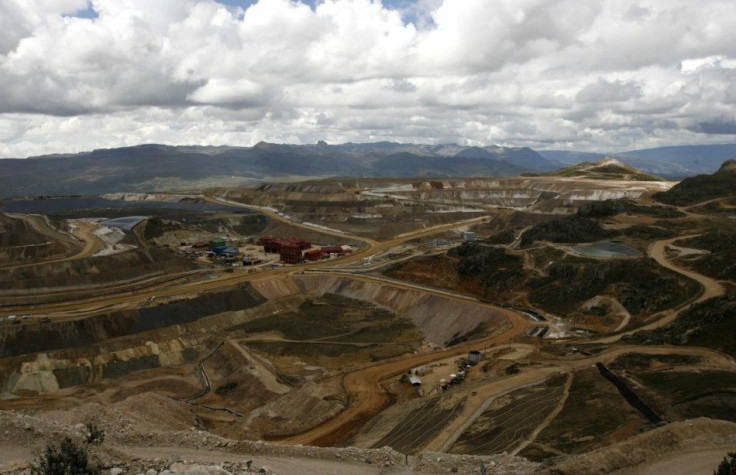Vandalism, Protest Blockade Halts Work at Peru's Yanacocha Gold Mine

Newmont Mining Corp. halted work at its giant Yanacocha gold mine on Monday after protesters blocked an access road and torched eight pieces of earth-moving equipment, prompting the company to ask Peru's government to intervene.
The mine, partly owned by Peruvian precious metals miner Buenaventura, said the drastic measure to suspend work was taken to ensure the safety of its employees.
The latest flare-up could test leftist President Ollanta Humala, who took office in July promising to calm conflicts between rural communities and companies. The conflicts have threatened to delay some 200 mining and oil projects nationwide.
We've temporarily suspended work, Yanacocha said in a statement in which it called on local and national authorities to do what is necessary to clear the roadblock and maintain a climate of peace and legality in the region.
Yanacocha, one of Latin America's largest gold mines, produced 1.5 million ounces of gold in 2010, some 1.6 percent of the world's output.
Shares of Buenaventura fell 3.1 percent to $40.54 and Newmont was down nearly 1 percent at $66.20, while spot gold was off slightly at $1,670 an ounce.
The protest was held as U.S.-based Newmont and Buenaventura try to move forward with a $4.8 billion project known as Minas Congas, which is essentially an expansion plan for Yanacocha. It would be the largest investment ever in a Peruvian mine.
Yanacocha officials said protesters are trying to pressure the mine to sign a community relations pact that would give local communities 200 million soles ($72 million).
The mine said the eight pieces of burned heavy equipment were worth $2 million and owned by a contractor. It said bulldozers, excavators and a grader were vandalized.
Besides the protest at Yanacocha, Humala's labor ministry has been trying for weeks to broker a new wage pact between striking workers at Freeport-McMoRan's Cerro Verde copper mine, where some frustrated workers started a hunger strike on Monday.
Humala has raised taxes and royalties on mining companies in a bid to fund social programs in rural towns while also trying to lure new investment to the Andean country by keeping mainstream macroeconomic policies in place. So far his government has received pledges for about $15 billion in new investment, worth around 10 percent of gross domestic product.
© Copyright Thomson Reuters 2024. All rights reserved.












